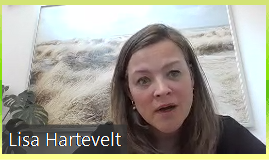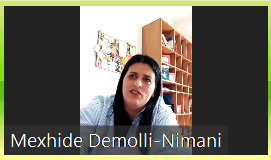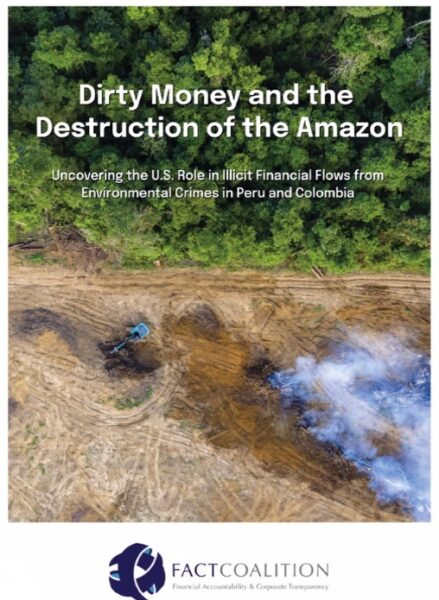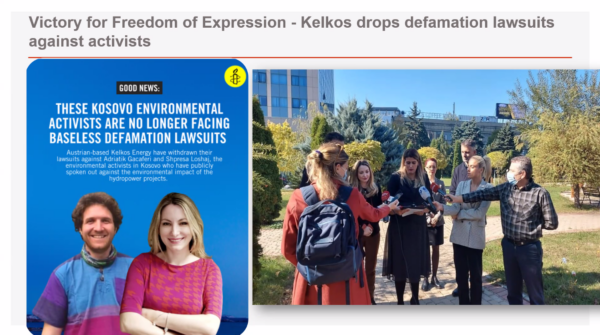14 May 2024 –
As we live in a crucial time to mitigate environmental degradation, biodiversity loss and climate change, it has become imperative to focus on corruption as a key factor aggravating these global challenges. At the 12th regional meeting for Europe, the United States and Canada held on April 30, we looked at examples of how corruption is intertwined with environmental crime. Three civil society organizations specialized in fighting corruption explained how they have come to work on addressing corruption affecting the environment, and presented their new projects on that front. The UNCAC Coalition Working Group on Environmental Crime and Corruption highlighted its advocacy priorities and invited groups to join and take action.
Need for an international framework to tackle corruption and environmental crime
Environmental crimes -such as wildlife trafficking, illegal fishing, logging and mining, and waste trafficking and pollution- cause significant harm, not only to the environment but also to the people. They have tremendous and sometimes irreversible consequences on many levels: on the health and the livelihoods of local communities, on countries’ management of natural resources for social and economic development and, ultimately, on our global ability to stop the destruction of ecosystems and address climate change.
These crimes are often committed by organized criminal networks relying on corrupt practices at every step of their supply chain and involving transnational illicit financial flows. Environmental crimes are also among the most profitable criminal activities, with estimated profits of up to 281 billion dollars each year, according to the Financial Action Task Force (FATF).
Countries across the world are increasingly concerned about the interlinkages between corruption and environmental harm, and seek to address these issues through concerted action and intergovernmental networks. In the last decade, police authorities of European states have created EnviCrimeNet and environmental prosecutors have set up ENPE to share expertise and improve international cooperation to investigate and prosecute forms of environmental crime such as illegal trade of waste, smuggling of protected animal and plant species or water pollution. At the same time, there is growing awareness of the need to address gaps in financial systems that enable money laundering, for instance in the US and European countries, of proceeds from environmental crimes that were committed in other resource-rich parts of the world.
Concerning the legal framework, significant steps have also been taken in the past few years that now should translate into concrete changes at national level. In 2019, the States Parties to the United Nations Convention against Corruption (UNCAC) adopted the first-ever resolution addressing environmental crime and corruption – Resolution 8/12 on Preventing and combating corruption as it relates to crimes that have an impact on the environment. It was complemented in 2020 with Resolution 10/6 on Preventing and combating crimes that affect the environment falling within the scope of the United Nations Convention against Transnational Organized Crime (UNTOC). In Europe, new legislation to protect the environment through criminal law is in the making. While the Council of Europe is preparing a new convention, the European Union (EU) adopted a new directive in March 2024 to improve the investigation and prosecution of environmental crime offences.
Uniting for policy advocacy against corruption and environmental crime
Meanwhile, civil society is also sharing expertise and joining forces through different platforms. Among these, the UNCAC Coalition Working Group on Environmental Crime and Corruption (WG ECC) convenes a global, dynamic group with around 200 members of civil society organizations and academia.

In the past months, the Working Group on Environmental Crime and Corruption focused on raising awareness and promoting accountability, transparency, and good governance on environmental protection ahead of the 10th UNCAC Conference of the States Parties held in December 2023 (CoSP10). A month earlier, it published an open letter calling for strong measures to prevent and combat environmental crime and corruption, signed by 301 organizations and experts from all over the world. Ahead of and at CoSP10, the working group coordinated joint advocacy to have a dedicated resolution adopted to tackle environmental crime and corruption. This objective was not achieved, but civil society put the topic of corruption and the environment on the agenda through different side events that were very well attended, and the UNCAC Coalition and WG ECC had a strong and influential presence at the Conference.
To continue building pressure ahead of the next UNCAC Conference of the States Parties in 2025, the working group has agreed on a road map with three objectives: 1) Increase knowledge and collaboration among its members; 2) Raise awareness of environmental crime and corruption among policymakers and other stakeholders; 3) Promote the adoption and effective implementation of robust policies and measures to tackle environmental crime and corruption.
As Lisa recalled, to achieve these objectives it is of utmost importance to increase cooperation with other international relevant fora to fight environmental criminality, on priority topics such as biodiversity loss, climate protection, impacts on human and environmental rights’ defenders and whistleblowers. This is also why they have elaborated a calendar of environmental crime and corruption policy fora and events, for any interested groups to contribute to and participate. Finally, Lisa invited organizations to use the advocacy tools and messages elaborated by the WG ECC, adapt them to their own contexts, advocate with their governments and raise awareness in their countries.
Supporting whistleblowers and empowering citizens against environmental corruption in Kosovo

Lëvizja FOL started to address environmental crime and corruption following a whistleblower report. In 2019, an environmental activist asked them for help to raise public awareness about the destruction caused by a hydropower plant in his town. The activist had posted on social media images of the affected area which showed that the water flow was entirely obstructed. Instead of solving the problem, the company sued him and asked for the removal of the images from social media and for a public retraction. That same company also threatened and intimidated another activist who campaigned against the company’s activities in that region, where it operates four hydroelectric plants, claiming 100.000 EUR as compensation for reputational damage.
To support both activists, Lëvizja FOL mobilized civil society organizations and managed to sensitize public opinion on SLAPP lawsuits. SLAPP is the acronym for “Strategic Lawsuit Against Public Participation” (SLAPPs) and refers to legal actions intended to intimidate opponents and critics (individuals and organizations) exercising their right to freedom of expression and participation in a matter of public interest. In both cases concerning the hydropower plants, Lëvizja FOL’s efforts led to the withdrawal of the lawsuits.
Mexhide discussed the organization’s success in raising awareness and advocating for environmental protection in Kosovo. She also shared new projects which include “Kosovo Green Action”, supported by the World Bank. This project seeks to empower citizens, in particular the youth, on key environmental issues and encourage them to promote sustainable practices in their communities. It involves training high school students from five municipalities across Kosovo in public speaking, critical thinking, and informal debate. To raise awareness about the critical condition of Kosovo’s natural parks, Lëvizja FOL plans to develop a comprehensive campaign involving working with local communities to train them in environmental conservation, launching targeted public awareness initiatives, collaborating with policy makers to strengthen laws and policies to protect the natural heritage, and building alliances to leverage other organizations’ knowledge and resources.
Uncovering the United States’ role in illicit financial flows from environmental crimes

Highlighting the link between corruption, illicit finance, and environmental degradation, Julia presented the findings of the FACT Coalition’s recent report which shows the extent to which criminal activities are destroying the Amazon forest and how the proceeds of these activities are laundered in the United States.

As a result, the FACT Coalition currently focuses its advocacy on addressing the prevalent use of anonymous entities in the United States -calling for beneficial ownership transparency- and foron the need to extend oversight to real estate agents and private investment markets. In addition to closing these gaps, they advocate for foreign environmental crimes to be considered a predicate offense for money laundering. This would help investigators in the United States to track and prosecute environmental crimes committed abroad, in line with UNTOC Resolution 10/6 which “calls upon States parties to develop or amend national legislation (…) so that crimes that affect the environment falling within the scope of the Convention are treated as predicate offenses.”
Finally, Julia emphasized the importance of improving coordination and communication among public authorities in different jurisdictions, and called for civil society collaboration across the world to share information and resources.
Coordinated strategies to enhance case publication and advocacy
Following the presentations, participants agreed on the importance of civil society mobilization and engaging the media to raise awareness of environmental crimes and jointly defend organizations and individual activists against SLAPP lawsuits. Given the lack of published cases of environmental crimes in Germany and other countries, it is very useful to share case studies and increase knowledge of what happens on the ground, what types of crimes prevail in different contexts, and what approaches to tackle them are being effective. In this sense, participants discussed the challenges and potential improvements in international information exchange, with a particular focus on beneficial ownership.
Lastly, participants put forward the role of public-private partnerships in addressing environmental crimes and the need to engage businesses, sectors like real estate and company service providers.
___________________________
You can find more information about the UNCAC Coalition Working Group on Environmental Crime and Corruption (WG ECC), its objectives and outputs, and indications for becoming a member on the following link: Environmental Crime and Corruption | UNCAC Coalition.
The page also includes a useful calendar of policy fora and events.
If you are a civil society activist from Europe and would like to become involved, please contact our Regional Coordinator Ana Revuelta Alonso at email hidden; JavaScript is required.




